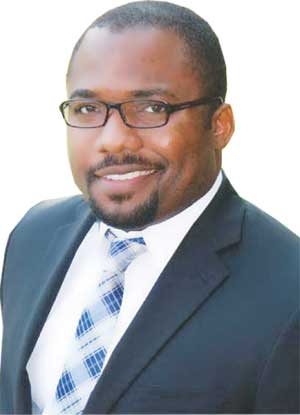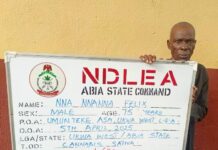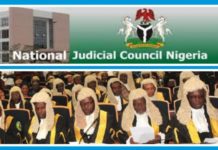What does the Senate’s confirmation of Dr. Joseph Nnanna as Deputy Governor of the Central Bank of Nigeria (CBN) portend? The Niche on Sunday looks at the new deputy governor….

The monetary policies of the Central Bank of Nigeria (CBN) are once again on the front burner. With oil prices collapsing, inflation rising and the currency wobbling, changes of personnel at the apex bank was really now very crucial. Nnanna’s confirmation was not a ‘take a bow and go’ affair perhaps in alignment with the mood of the times he actually faced a proper scrutiny. Mercifully, for a change, the Senate’s joint committee on banking, insurance and other financial institutions at least did a sensible job. Hopefully a precedent has been set here, a departure from the usual mendacious self-serving back slapping.
Obviously the scholarly presentation of Nnanna charmed the Senate Committee. He came across as rather thoughtful, not just professorial but also showing the ability to apply to what is now a daunting reality, a solid grasp of the fundamentals. His confirmation must be viewed from the backdrop of the need for the CBN to use its mandate to assiduously respond to declining crude oil prices in the world market and its effect on the nation’s economy. Clearly the terms of international trade has turned against Nigeria’s mono-crop economy. Of course we will continue to hear the worn-out sanctimonious sermons about ‘diversification’ and assorted cliches. Well, we can continue to analyse, the critical issue remains what is to be done and how?
The confirmation hearing offered the opportunity to have at least a glimpse of the man behind the mask as it were. In some ways this proved to be refreshing. At least he portrayed an ability to think beyond the much worn out cliches and self-serving shibboleths. A glimpse of his thinking indicates that he has at least thought more deeply beyond the mendacity of ‘market-driven’ reforms and assorted slogans.
In view of the short-termism of an Anglo-Saxon banking system, which has had, to put it mildly mixed reviews about its efficiency, Nnanna’s position was more refreshing. A glimmer of independent thinking can be seen in his response. He very sensibly pointed out that the development banks like the Bank of Industry (BOI), Nexim Bank, the Bank of Agriculture, presumably the Bank of Infrastructure and so forth have to recapitalised.
His advocacy makes sense. In fact it is a statement of the obvious. This ought to have been done decades ago. The facts are straight forward. A fragile economy needs long-term development finance. For example, the British government in 1945 after the Second World War induced what was in fact the world’s first venture capital institution, Investors in industry. The institution backed by the commercial banks was crucial in the revitalisation of British industry after the damage of the war.
In addition the key role played in Brazil’s economic development and success by BNDES, the Brazilian bank for Social and Economic Development. Continuous recapitalisation carried out by successive Brazilian governments has turned BNDES into one of the world’s largest development finance institutions. As even the Economist newspaper has had to admit, the successive infusion of capital means that BNDES can make very long-term loans with tenor of up tp 30 years and beyond at discretionary interest rates. It is therefore very refreshing that a man who is now in a strategic position can think on these lives. Quite a refreshing departure.
His position needs to be placed on the record. “We can mandate them to lead at a fixed interest rate to entrepreneurs and other investors willing to invest in Nigeria’s economy. If we recapitalize the BOI and we tell the Managing Director that we are giving him this money and ask him to lend at a specific interest, he will oblige us because it is the tax payers money.”
Quite a departure! Perhaps it reveals a shift in thinking. Could it, we dare to ask, be the beginning of the end of an illusion? After all as he pointed out, “We cannot force the management of a private-commissioned bank to lend at a fixed rate. This is because they will take into consideration, the risk premium, especially when most people borrow without the intention of repayment.”
That was rather diplomatic, looked at from the perspective of critics who feel that helpful. A harder position is that the banks have actually contributed to the de-industrialisation of the country. They point out for example that Germany’s much acclaimed ‘lender’ (provincial) bank have proved to be the bedrock of the country’s industrial base. They have been sympathetic to manufacturers and SME’s engaging in long-term, hand-in-glove enduring partnerships.
The diplomatic Nnanna nevertheless did point out that the bank’s balance sheets were landing on loans. He appeared to step back a bit by stating that the nation had gone beyond the era of fixed interest rate. Policy makers he emphasised had to be circumspect as they navigate, “… the unholy trinity that is the relationship between interest rates, exchange rate and inflation.”
Nnanna, a former Director of Research at the CBN also used to be Special Assistant to the CBN Governor from 1994 to 1999. Prior to that he was a staff economist as well as desk officer in the African Department of the International Monetary Fund (IMF) in Washington D.C.
He had his higher education at William Paterson University in New Jersey in the United States and at the University of Houston, Texas, United States. His concentrations encompassed a preparation in public policy and economics. For him it has been quite a long trawl at the apex bank. He joined the institution after a 17 year sojourn at the United Nations. An adventurous streak was revealed when he founded and headed Sogato strategies South Africa, a global strategy and risk advisory firm in Geneva, Switzerland.
He joined the CBN in November 2009 and for most of his five years was deputy governor for financial system stability and for a few months served as deputy governor for operations. He was a member of the bank’s board of directors, the monetary policy committee and the committee of governors. He also served as Chairman or the member of the board of directors of the Nigerian Export-Import bank (NEXIM), The Financial Institutions Training Centre (FITC), The Securities Exchange Commission (SEC) and the Asset Management Company of Nigeria (AMCON).
He is obviously very relaxed about his elevation. He will obviously play a key role in the stormy weather ahead, hopefully he will provide refreshing, independent insights.
















